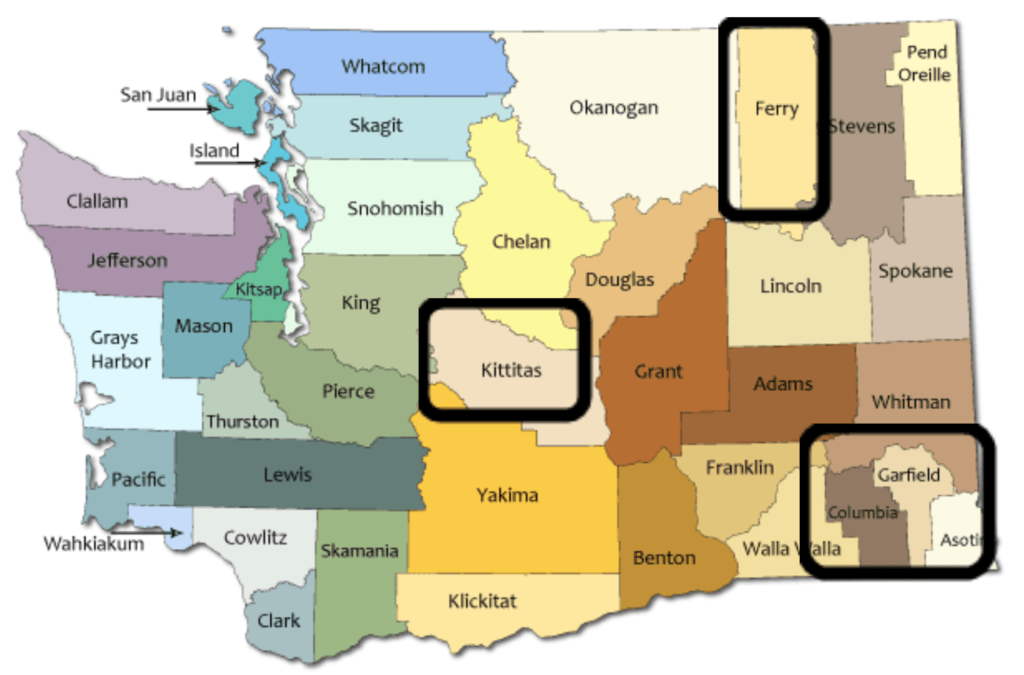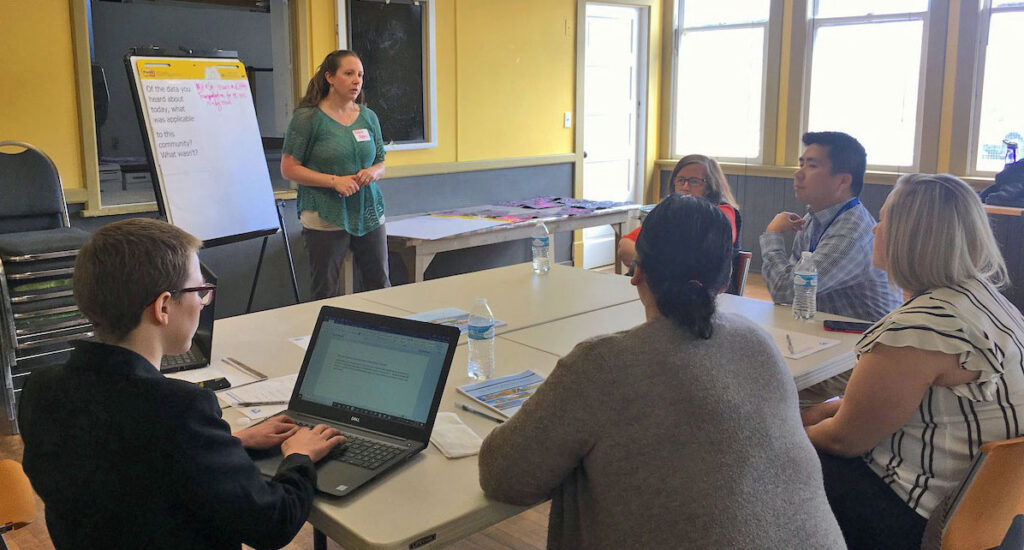
Over the past decade, Global to Local has successfully applied lessons from global health to serve residents of South King County. While we’re committed to that work for the long term, we’re also excited to share what we’ve learned with others throughout Washington state and beyond!
Last December, we kicked off a seven-month effort to identify lessons from global health that might assist in overcoming barriers to health in rural Washington communities. Under a contract with the Washington Department of Health, we collaborated with groups in five counties in Central, Northeast, and Southeast Washington to explore how global learning might enhance ongoing community health improvement work.
A key principle of G2L’s model is that communities are experts in the barriers to health that they face, so we started by studying health data collected by the communities, and by listening to community residents. These conversations were facilitated by the Kittitas Community Health Network in Kittitas County, the Healthy Ferry County Coalition in Northeast Washington, and the Southeast Washington Health Partnership in Garfield, Whitman, and Asotin counties.

After identifying key health concerns, we scanned the global health literature for approaches to reduce health disparities in rural Washington. We used a strategic framework from a landscape assessment and literature review of global health interventions that we commissioned from PATH, a Seattle-based global health innovation organization, in 2017. We also partnered with the Strategic Analysis, Research & Training (START) Center, a research and consulting center housed in the University of Washington Department of Global Health, to help search for global health solutions.
Issues concerning access to care and financial insecurity were among the top health barriers identified across all Washington state rural communities. Other common health barriers included a lack of behavioral health services despite an increasing demand, and issues among youth such as bullying, inadequate access to childcare, and obesity.

community partners to listen to local health barriers.
We shared 11 global health strategies that might be of interest to rural communities. Three of these strategies emerged as the most potentially useful and transferable approaches to mitigate the impact of barriers to health identified in each community: deployment of community health workers; use of mobile health technology; and task shifting or task sharing of services typically provided by physicians, nurses, psychologists, and other highly trained health care professionals.
We shared both general ideas and examples of specific projects with each community partner, and received overwhelmingly positive feedback regarding the utility of the global health strategies.
“I think your recommendations around Community Health Workers, task sharing, and mobile apps are spot on for our communities.”
Robin Read, Executive Director of Kittitas County Health Network
The Washington Department of Health will provide a report describing the BRIDGES work to the Washington State Legislature, which funded the effort.

